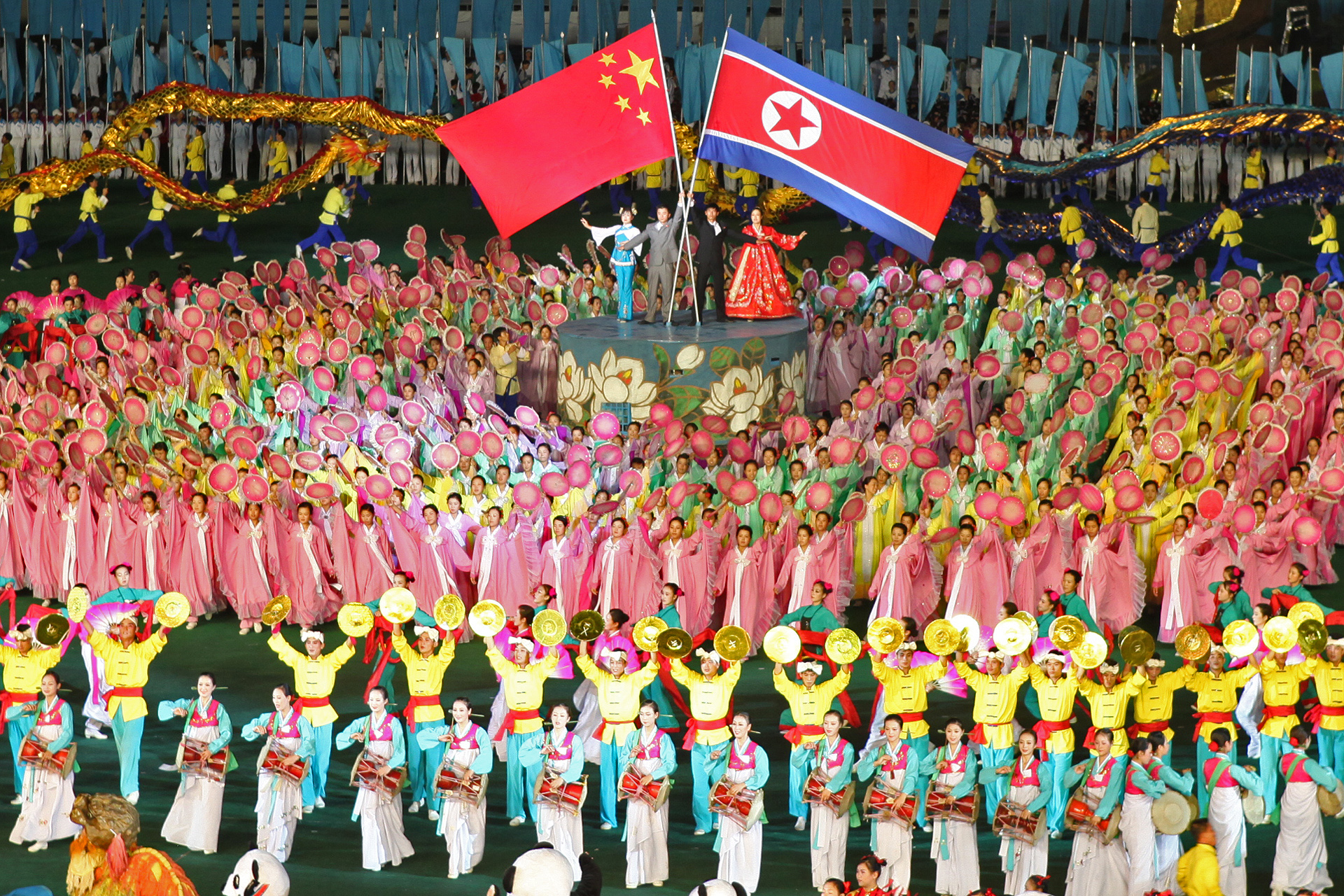
Despite ridiculing North Korea’s politics, China takes more cues from the country’s authoritarian regime than one might expect.
By Yifu Dong
[divider]
[dropcap]W[/dropcap]hy does the North Korean regime still exist today? Defying international norms, the Kim family dynasty bolsters its rule through lies and terror — killing opponents, starving the poor, deifying its leaders, brainwashing the population, and pursuing nuclear programs.
In the eyes of dictators, however, the North Korean model is neither excessive nor primitive; it is a perfect model for economic extraction. The North Korean ruling class exploits its own people with impunity: forced labor is a staple of the country’s economic system. North Korea also remains largely immune to international pressure — sanctions couldn’t keep Kim Jong-un from acquiring atomic bombs, and few from the outside can reach the North Korean people.
No regime will openly acknowledge that it emulates North Korea. But all authoritarian regimes often share more common ground with North Korea than they admit. China is one such example. On the surface, the two countries could not seem more different. China is an economic powerhouse with a reasonable degree of openness, while the economy in North Korea, which many have dubbed a “Hermit Kingdom,” fares much less well.
Despite differences in economic systems, both regimes are exploitative in nature. North Korea’s ruling class has no incentive to open up and create more wealth, for the current tight political control upholds its privilege to extract. In comparison, although China’s ruling elite devoured the lion’s share of the country’s economic gain, it still faces trouble legitimizing its domination. As a result, China’s authorities undertake similar propaganda maneuvers as their North Korean counterparts that often ironically belie the two regimes’ common ground.
In North Korea, heavy indoctrination permeates education. Propagandistic texts celebrating the country’s leaders, past and present, are ubiquitous in school textbooks. “The revered Great Leader general Kim Il Sung fired a signal flare,” one textbook writes. “Bang! Bang bang! The guerilla fighters killed all the Japanese devils. ‘Long live General Kim Il Sung!’ The people shouted with all their strength.”
In China, official elementary school regulations require students to “love the motherland, love the people, and love the Communist Party.” This love is nurtured by oft-falsified stories in school textbooks about the Communist Party’s glorious past. One well-known and typical example involves the heroics of Huang Jiguang, a soldier during the Korean War who threw his body against an American machine gun to shield his comrades. In reality, machine gun bullets can easily blow away a body, so Huang’s alleged heroics, even if true, were likely futile.
Ironically, China’s Central Propaganda Department often tries to differentiate North Korea from China by allowing Chinese media to ridicule the country’s ideological ally. North Korean songs worshipping Kim Jong-un, such as one titled “Without him, we will die,” as well as emotional announcements by North Korean TV hosts and words from North Korean school textbooks are often the hottest clickbaits on Chinese Internet. These explicit presentations of North Korea’s backwardness perhaps intend to inspire disdain toward North Korea and a sense of superiority in the Chinese public.
However, when many commenters likened North Korea to China under the rule of Mao Zedong, web censors soon deleted most of those comments.
While Chinese propaganda criticizes North Korea, it also portrays the country as an erratic ally constantly threatened by capitalist bullies, such as South Korea, Japan and the United States. Such rhetoric reveals that China and North Korea may share more common ground than Chinese propaganda admits. This support for North Korea shores up Beijing’s own legitimacy and tacitly justifies its quest for tighter political control by portraying the two at the mercy of capitalist countries.
Though China’s propaganda may tell a different story, Beijing’s tightening grip on civil society reflects its growing tendency to mirror Kim Jong-un’s authoritarian regime. In 2015 alone, Chinese authorities detained five feminist activists right before International Women’s Day, arrested more than 200 lawyers in one day in July, put foreign activists on televised confessions and even allegedly kidnapped Hong Kong booksellers from outside Mainland China.
For some economic and political commentators, North Korea needs to open up its market as China has done. But with China’s increasing control on society, it seems as though — ironically enough — it is China following in North Korea’s footsteps.
[hr]
Yifu Dong is a junior history major in Branford College. You can contact him at yifu.dong@yale.edu.